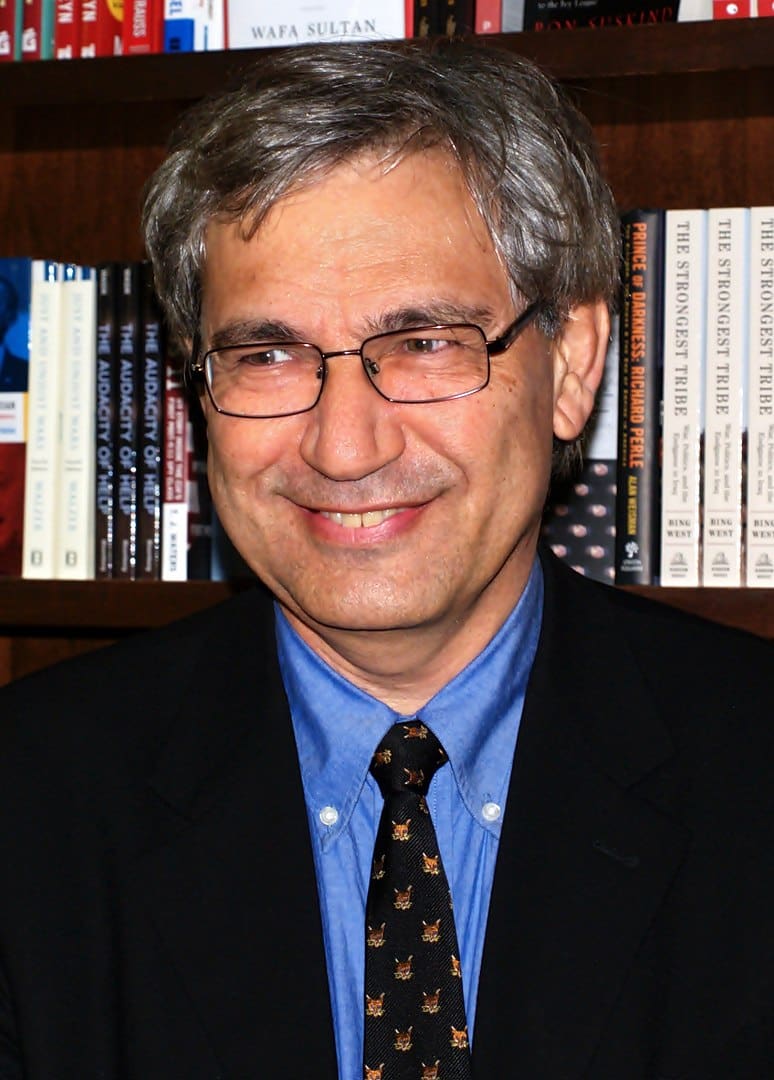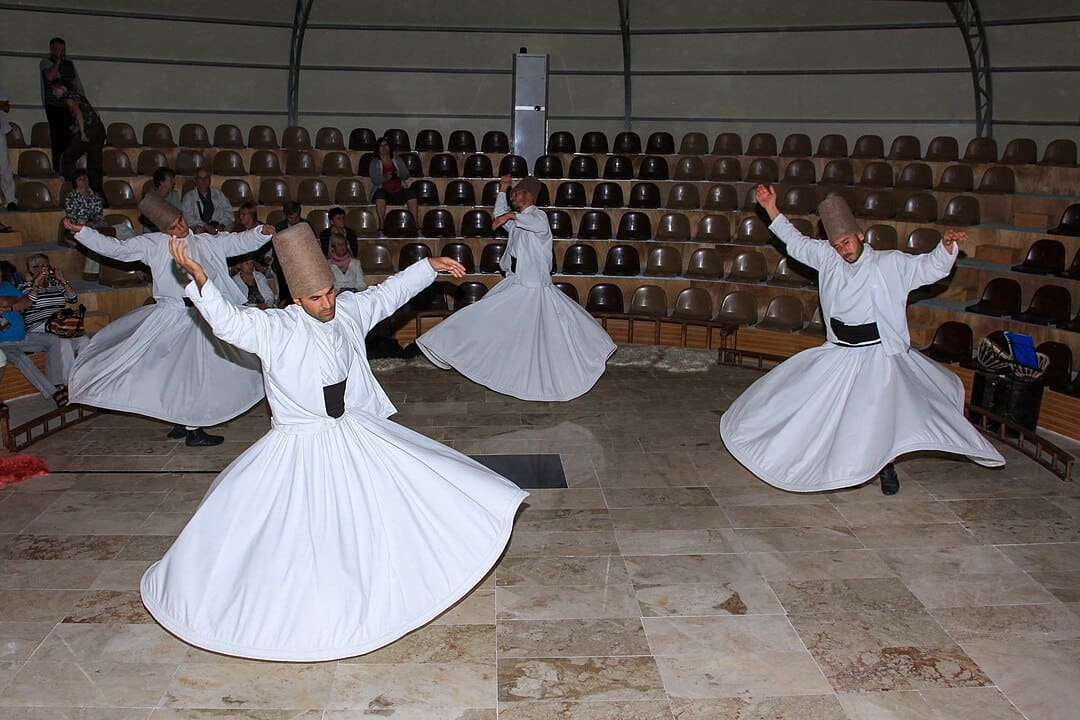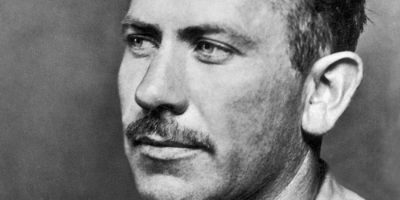Top 15 Famous Turkish People
Originally published by Lilian in December 2021, Updated by Charity K in May 2023 and Updated by Felix in February 2024
Turkey is located at the crossroads between Europe and Asia making it an important land throughout world history. Its city of Troy was very famous in Greek literature.
The city of Troy was found on the Turkish coastline thousands of years ago. This was the first major empire to be formed in the land was the Hittite Empire.
A majority of the Turkish people are Muslim but there are other religions here such as Christianity. Turkey has no official state religion.
This country boasts charming landscapes, rich history, prehistoric towns, magnificent ruins, and impressive culture.
The Turkish people have made a name for their country on the global scene. I have put together a list of the top 10 famous Turkish people. You may know some of them and some names may be new.
Read them below.
Read more about other famous people here.
1. Mustafa Kemal Ataturk – Founding Father

Photo Courtesy of Wikimedia
Mustafa Kemal is the most famous Turkish in not only Turkey but the world too. He was the founding father of modern Turkey.
Kemal was a talented and disciplined military and bureaucratic leader. When it came to equality, Kemal’s policies stated that men and women were equal.
His other popular policies were secularism, democracy, history, science, education, agriculture, and foreign affairs. They were considered to be the most ideal.
Before rising to prominence, Kemal commandeered the victory over the Turkish Ottoman in the Battle of Gallipoli in 1915. This led to the defeat and dissolution of the Ottoman Empire.
Kemal soon led the Turkish National Movement resisting mainland Turkey. It led to the partitioning of the victorious Allied powers.
2. Suleiman the Magnificent – Ottoman Sultan

Photo by Nakkaş Osman – Wikimedia
Suleiman I was also known as Suleiman the Magnificent and Suleiman the Lawgiver in his realm. He was the 10th and longest-serving Sultan of the Ottoman Empire between 1520 and 1566.
Suleiman, I came to prominence in the 16th century and ruled the empire’s military, politics, and economy. His kingdom had more than 25 million people.
He conquered the Christian strongholds of Belgrade, Rhodes, Hungary, and Vienna in 1529.
The kingdom extended to North Africa, the Mediterranean Sea, the Red Sea, and the Persian Gulf.
As his empire was influential and admired by others from far beyond when it came to society, education, taxation, and criminal law.
Other than being an excellent leader, Suleiman the Law-Giver was also a poet, goldsmith, and multilingual.
3. Tarkan – Pop Artist
Tarkan grew up in Alzey, Rhineland-Palatinate. He moved to Turkey in 1986 together with his family.
As a young boy, Tarkan began to show interest in music. He, therefore, took music lessons when he went to high school at Karamürsel.
After graduating from high school, Tarkan signed a contract with Plak, a record label in Istanbul. He released his first album in 1992, his lead single being Kil Oldum.
The second and third albums were released in 1994 and 1998 respectively. His single, Simarik, from his third album, became an instant hit in several European countries.
Tarkan signed a new contract with Universal Music Group in 1998. In 1999, he received platinum and gold certification in several countries.
His music career has been successful rewarding him with four Turkey Music Awards, six Golden Butterfly Awards, and one World Music Award, and has received various nominations.
Read more about other famous people here.
4. Aziz Sancar – Scientist

Photo by Holger Motzkau – Wikimedia
Aziz is a Turkish academician, biochemist, molecular biologist, and scientist. He was awarded the Nobel Peace Prize in chemistry in 2015.
In 1983, through his study of bacteria, Aziz discovered protein molecules repair DNA damaged by ultraviolet (UV) light.
His scientific discoveries led to an increased understanding of how living cells work, the causes of cancer, and the aging process.
Sancar currently works as a Professor of Biochemistry and Biophysics at the University of North Carolina, USA.
Aziz is the co-founder of the Aziz and Gwen Sancar Foundation. This is a non-profit organization that promotes Turkish culture as well as supports Turkish students in the United States.
5. Nuri Bilge Ceylan – Photographer
Nuri is another famous person from Turkey. He is a film director, screenwriter, actor, and photographer.
Ceylan won the Palme d’Or award, the highest prize at the Cannes Film Festival. This talented photographer uses his lenses to show a different perspective on human life.
His photography depicts monotony, individualism, existentialism, and details of human beings.
He became interested in photography when he was 15. Ceylan took part in photography contests while studying at Boğaziçi University.
His first photography gig was taking passport photos to make money.
Although he studied electrical engineering at university, he moved to London and Kathmandu to figure out his next move.
He rediscovered his love for photography when he was doing military service in Turkey.
6. Dilhan Eryurt – astrophysicist
Dilhan is a Turkish astrophysicist who has made great contributions to scientific research.
Her scientific discoveries include the formation and evolution of the Sun and other main-sequence stars. These facts about the solar system had not been understood before her scientific discoveries.
Eryurt worked for NASA between 1961 and 1973. She was part of the team that researched the Apollo program.
In 1969, she was awarded the Apollo Achievement Award for her contribution to Apollo 11 mission’s first landing on the moon.
Later, Dilhan founded the astrophysics department at the Middle East Technical University (METU) in Turkey. Subsequently, she was the first Dean of METU’s science and arts faculty from 1988 to 1993.
Read more about other famous people here.
7. Emine Erdoğan – First Lady

Photo by Yasin Bulbul – Wikimedia
Erdoğan was one of the founding members of the Provincial Women’s Branch Administrative Board for the Welfare Party. This was when Recep Tayyip Erdoğan, her husband, was elected the Istanbul Provincial Head.
Her contributions paved the way for Turkish women to actively participate in politics. She also launched a women’s movement, which played a big part in the success of the Refah Party in the 1994 elections.
When her husband was elected Mayor of Istanbul, Emine took up different social responsibility projects.
Some of them were having iftar tables for the poor during Ramadhan. This tradition is still practiced to date.
Together with the wives of governors from other provinces in Turkey, they campaigned to improve the living conditions of women, the elderly, and the veterans.
8. Sabiha Gökçen – Pilot

Photo Courtesy of Wikimedia
Sabiha was the first female Turkish pilot. She was born on 22 March 1913 and began her flying career in the military at the age of 23.
As a military pilot, Sabiha flew for more than 8,000 hours as well as being part of several military operations.
Sabiha was one of the 13 children adopted by Turkey’s founding father, Mustafa Kemal Atatürk. Under his orders, she was given special education at the Tayyare Mektebi Aviation School.
The Guinness Book of World Records recognized her as the first female combat pilot.
She was also the only female pilot selected for the poster of The 20 Greatest Aviators in History. It was published by the United States Air Force in 1996.
9. Meral Akşener – Politician

Photo by Yıldız Yazıcıoğlu – Wikimedia
Meral is a Turkish politician, teacher, and historian. She also served as Minister of the Interior as well as the vice-speaker of the Grand National Assembly.
Meral is the founder and leader of the Good Party. She was a presidential candidate in the 2018 Turkish elections.
Her first political career was as the deputy of the True Path Party in parliament from 1995 to 1999. She missed a parliamentary nomination during the 2015 general elections.
Akşener is the leader of the opposition in Turkey. She has been nicknamed the iron lady.
10. Naz Aydemir – Athlete
Naz is a talented volleyball player and is no doubt one of the best setters in international volleyball.
She plays for Fenerbahçe and the Turkey women’s national volleyball team as a setter.
In her volleyball career, Naz has won two league championships with Fenerbahçe and three with Eczacıbaşı Zentiva.
Aydemir won her first FIVB Women’s Club World Championship gold medal during the 2010 Club World Championship.
Her team, Fenerbahçe, was the first Turkish team to win an FIVB Women’s Club World Championship gold medal.
She took a break from her volleyball career after her pregnancy and returned after giving birth.
11. Umran Inan- Scientist
Umran is known for his work at Koc University and Stanford University in the field of geophysics and very low-frequency radio science.
He was the president of Koc University between 2009 and 2021. He has also been an active member of various organizations since 1973 and has been awarded by many institutions.
Aside from being a member of the Institute of Electrical Electronics Engineers, he is also a member of the International Radio Science Association, the American Physical Society, TUBA, and the Electromagnetic Academy.
Umran was awarded by Aeronautics and Space Administration NASA with a group achievement award in the years 1983, 1998, and 2004.
12. Ayse Sahin- Mathematician
Ayse is a well-known mathematician who works in dynamical systems. She was appointed the Dean of the College of Science and Mathematics at Wright State University in June 2020.
From 1994 to 2001, Ayse joined the mathematics faculty at North Dakota State University. She later moved to DePaul University where she was a full-time professor in 2010.
She is the co-author of two textbooks on calculus and dynamical systems. She published the textbook Discovering Discrete Dynamical Systems through the Mathematical Association of America.
Read more about other famous people here.
13. Murat Iyigun- Economist

Murat Iyigun, CC BY-SA 4.0, via Wikimedia Commons
Murat is a scholar and author in the field of economics of family, economic development, and political economy. He is a professor at the University of Colorado.
In 1995, he completed his Ph.D. in economics at Brown. The title of his Ph.D. thesis was Essays on Economic Mobility, Trade, Production, and Extralegal Appropriation.
From 2010 to 2012, Murat was the Associate Editor of the Journal of Mathematical Population Studies. Currently, he is the Co-editor of the Journal of Demographic Economics.
Murat has published papers in leading journals like the American Economic Review, The Review of Economic Studies, and the Quarterly Journal of Economics.
14. Burcin Mutlu Pakdil- Astronomer
Burcin is an astrophysicist and Assistant Professor at Dartmouth College. She formerly served as a National Science Foundation and Kavli Institute for Cosmological Physics Postdoctoral Fellow at the University of Chicago.
Her research led to a discovery of an extremely rare galaxy that is now commonly referred to as Burcin’s Galaxy.
In 2018, she was a TED Fellow and in 2020 she was a TED Senior Fellow.
She has been honored and awarded including NSF Astronomy and Astrophysics Postdoctoral Fellow, KICP Fellow, 2017 Te Outstanding Young Persons Scientific Leaders Award, and 2017 APS Woman Physicist of July.
15. Nihat Berker- Physicist
Nihat is a scientist, chemist, emeritus professor at MIT, and physicist. He is the acting Dean of Engineering and Natural Sciences at Kafir Has University.
From 1999 to 2004, Nihat served as a professor and dean of the School of Sciences and Letters at the Istanbul Technical University.
In 2016, he was the president of Sabanci University in Tuzla, Istanbul. Currently, Nihat is the acting dean of the faculty of engineering and natural sciences at Kadir Has University.
Nihat is known for his research in statistical mechanics.
16. Mevlana Jalaluddin- Poet

See page for author, Public domain, via Wikimedia Commons
Mevlana Jalaluddin Rumi, a thirteenth-century Persian poet and mystic, transcends borders with his timeless wisdom and poetic brilliance.
Born in Balkh, now Afghanistan, his works, notably the “Masnavi” and “Divan-e Shams-e Tabrizi,” continue to inspire millions globally. Rumi’s poetry delves into themes of love, spirituality, and the soul’s journey toward divine union, earning him the title “Mevlana,” meaning “our master.”
His profound influence extends beyond literature, fostering understanding and harmony among diverse cultures. Rumi’s legacy persists through numerous translations and adaptations, showcasing his enduring relevance.
His works have garnered countless accolades and remain celebrated worldwide for their universal resonance and profound insights.
17. Fatih Sultan Mehmet-Ottoman Sultan

Konstantin Kapıdağlı, Public domain, via Wikimedia Commons
In the annals of history, Fatih Sultan Mehmet stands as a colossus, his legacy etched in the annals of time.
Born in 1432, he ascended the Ottoman throne at a tender age, displaying remarkable military acumen and statesmanship. Mehmet’s crowning achievement came in 1453 when he conquered Constantinople, forever altering the course of history and establishing Istanbul as the heart of the Ottoman Empire.
His visionary leadership fostered cultural and architectural renaissance, epitomized by the construction of the Topkapi Palace and the grand Fatih Mosque. Mehmet’s indomitable spirit and strategic brilliance earned him enduring accolades, revered as the “Conqueror” throughout the ages.
18. Orhan Pamuk- Author

David Shankbone, CC BY 3.0, via Wikimedia Commons
In the world of literature, Orhan Pamuk reigns as a luminary, his pen weaving intricate tales that captivate hearts and minds. Born in Istanbul in 1952, Pamuk’s literary journey transcends borders, his novels delving into the complexities of Turkish society and identity.
With works like “Snow” and “My Name is Red,” he masterfully blends history, culture, and introspection, earning accolades like the Nobel Prize in Literature in 2006.
Pamuk’s prose is a tapestry of emotions, his narratives a journey through the labyrinth of human experience. Through his words, he invites readers to ponder the profound questions of existence, leaving an indelible mark on the literary landscape.
19. Neslihan Atagul- Actress
With grace and talent, Neslihan Atagül graces both the screen and hearts alike, her presence illuminating Turkish television and cinema. Atagül’s ascent to stardom was meteoric, her performances resonating with authenticity and depth. From her breakout role in “Yaprak Dökümü” to captivating audiences in “Kara Sevda,” she embodies characters with nuance and emotion.
Atagül’s prowess hasn’t gone unnoticed, earning her acclaim and prestigious awards within the entertainment industry such as Golden Boll Film Festival 2006, 2007 Moscow 2morrow Film Festival, and 2011 19th Golden Cocoon Film Festival.
With each role, she paints a portrait of strength and vulnerability, leaving an indelible impression on audiences worldwide and solidifying her status as a beloved actress.
20. Kivanc Tatlitug- Actor and Model

daly3d abd, CC BY 2.0, via Wikimedia Commons
Kivanc Tatlitug, the epitome of charisma and talent, has left an indelible mark on both the world of acting and modeling, garnering numerous accolades and awards throughout his illustrious career.
Rising to fame in the early 2000s, Tatlitug’s magnetic presence on screen quickly captured the hearts of audiences.
His portrayal of iconic characters in hit series such as “Gümüş” and “Aşk-ı Memnu” earned him widespread acclaim and multiple prestigious awards, including several Golden Butterfly Awards and a Seoul International Drama Award.
As a model, he has graced the covers of numerous magazines and won accolades for his striking looks and impeccable style, solidifying his status as a bona fide icon in the entertainment industry.
As I reflect on the renowned Turks that have graced history’s stage, I am left in awe of this small country’s enormous cultural impact. Though vastly different, each famous Turk has imprinted their unique blend of passion and talent upon the world. After learning of their groundbreaking achievements, I am inspired to further explore the dynamic individuals this rich culture has cultivated through the centuries.
20 Facts about Turkish People
As a Turkish lover, I have realized I did not know much about the Turkish people or their culture. Who were they? What was life like in Turkey? Eager to learn, I started researching some interesting facts. There are over eighty million Turkish citizens, making it one of the world’s most populous countries! Turkey has a rich history going back millennia and was once home to great empires. The Ottoman Empire ruled over vast territories for centuries.
Today, you can still see Ottoman architecture and mosques with grand domes and minarets in Istanbul. But there is so much more than ancient sites to discover here. Turkish culture is a unique blend of Eastern and Western traditions. Turks are famous for their warm hospitality, strong coffee, savory kebabs, and passion for soccer. The Turkish language has its alphabet and poetic roots. From whirling dervishes to beautiful textiles, Turkey seemed endlessly fascinating! I could not wait to experience its diverse landscapes and meet its welcoming people firsthand. Follow me as I uncover some of the most fascinating facts about the Turkish people that you did not know.
Below are twenty facts about the Turkish people:
1. Turkish People give importance to Cleanliness as part of the Culture
Cleanliness and hygiene are highly valued in Turkish culture. Turks believe that cleanliness is part of faith and spirituality. They regularly wash themselves, keep their homes spotless, and remove shoes before entering a house. Public baths called hamams are an integral part of Turkish society. Even today, many Turkish homes have a small washroom for cleansing before prayer. Overall, cleanliness is ingrained in Turkish society, and customs, are seen as a way to purify oneself physically and spiritually.
2. They are Tea Lovers and have made the it a National Drink
Tea is deeply ingrained in Turkish culture and daily life. Turkey has the highest per capita consumption of tea in the world. Turkish black tea, called Çay, is served in small tulip-shaped glasses and drunk throughout the day. Tea time is a social ritual that brings family and friends together. The country has thousands of çay bahçesi or tea gardens where people gather to chat over tea. Brewing and serving tea with care and etiquette is considered an art. The beverage has become a symbol of Turkish hospitality, friendship, and leisure. For Turks, çay is the national drink that permeates daily routines and fosters social bonds.
3. The Turks are Pioneers of Yoghurt and it is part of the Meal

Image by Aline Ponce from Pixabay
If you love yogurt, Turkey is the place to be. Yogurt has been a staple in Turkish cuisine and culture for centuries. The word “yogurt” itself comes from the Turkish word “yoğurt”. Turks are credited with inventing yogurt by accidentally leaving milk in animal skins that contain natural enzymes that fermented the milk. Today, yogurt remains an integral part of Turkish meals and is eaten daily at breakfast, during lunch, and with dinner. Turks enjoy plain yogurt as well as yogurt drinks like Ayran. It is also used in dips, soups, kebabs, and desserts. The popularity of yogurt in Turkey has spread this nutritious food around the world. For Turks, yogurt is considered “a national treasure”.
4. Barbershops are solely for Men as Salons are for Women
In Turkey, barbershops (erkek kuaförü) are traditionally spaces only for men to socialize and get their hair cut, while women go to beauty salons (kadın kuaförü). This gender separation of hair care establishments stems from old Ottoman practices of public baths being divided by gender. Today, Turkish barbershops retain a masculine atmosphere where men can relax, chat, drink tea or coffee, and play games like backgammon. The barber fulfills the role of confidant. Women are beginning to frequent barbershops but they remain a predominantly male social space rooted in Turkish culture and history.
5. They are renown heavy Smokers
Smoking is part of Turkish culture. Turkey has one of the highest smoking rates in the world. Over a third of the adult population smokes regularly. Both men and women smoke openly in public spaces like cafes, restaurants, and bars. Smoking is seen as a social activity that facilitates conversation and friendship. Many Turks start smoking at a young age due to lax attitudes. Cigarette smoking has even been incorporated into the Turkish vocabulary and gestures. Offering cigarettes is considered polite, and refusing is rude. The tobacco industry has a strong lobbying influence. Smoking is an integral part of Turkish social life and culture.
6. They leave their Shoes outside the Apartment doorstep
In Turkish apartment buildings, an unusual sight awaits outside front doors – rows of shoes lining welcome mats like sentinels standing guard. This quaint custom keeps interior spaces immaculate, dirt and debris banished to the hallways. Removing one’s shoes before entering a home is sacrosanct, a show of respect deeply ingrained in the culture. Some develop elaborate systems organizing footwear into orderly pairs. Forgetting to remove your shoes invites chastising glares. The shoes left clustered around each threshold are codes – sources of tidiness, identity, and tradition uniquely Turkish.
7. They are Generous hosts every time you visit
Hospitality is a point of cultural pride and honor for Turks. When welcoming guests into their homes, Turks go above and beyond to make visitors feel cared for. Turks take hosting duties seriously by providing the best of everything – preparing lavish meals with many courses, serving Turkish tea constantly, and giving the most comfortable room in the house to guests. Generosity and making guests happy are the priority. There is even a Turkish proverb “Fish and guests stink after three days” referring to the importance of being a proper host during the entire stay.
8. The People love meeting in Cafes and in Homes for friendly Chats

Image by Engin Akyurt from Pixabay
Socializing is a vital part of Turkish culture. Turks love engaging in long, friendly conversations over hot cups of tea or Turkish coffee. Cafes are hubs of social activity in both large cities and small towns. Locals regularly meet up at their favorite cafes to catch up with friends or chat with new acquaintances. Even home visits revolve around sharing tea and light snacks while covering diverse conversational topics. Talking openly is seen as a way of fostering understanding and camaraderie. Whether debates over politics or idle gossip, Turks devote time to interconnect through dialog. For them, a full and meaningful life involves spending quality time conversing with others.
9. The Elders in Turkey are immensely respected by the Juniors

Image by Engin Akyurt from Pixabay
In Turkish culture, elders are viewed with great honor and reverence. Younger people are expected to treat older people with utmost respect through words and actions. It is considered rude for juniors to contradict or argue with seniors. Elders are addressed using formal titles. Youth assist elders whenever possible, like giving up seats on public transport. Care of aging parents is a duty. Seniors pass down wisdom, traditions, and advice to younger generations. Their life experiences command deference. The elderly retain prestige in families and society. This deference reflects core Turkish values of cherishing wisdom and appreciating life’s journeys.
10. Turks use their Network to find Trustworthy Service Providers
Personal relationships and word-of-mouth are heavily relied upon when seeking services and professionals in Turkey. Turks tend to distrust companies and services they find through impersonal means like advertisements. Instead, they turn to their family, friends, and community connections to find vetted providers ranging from doctors to contractors. Recommendations from someone within one’s intimate circle bring a sense of trust and assurance. The intimate ties in Turkish society foster this dependence on personal networks. For Turks, the credibility and confidence that comes through a referral is far more valuable than company marketing. Finding quality services in Turkey is a social, communal affair.
11. Strangers in Turkey refer to each other with a lot of Respect

Image by Okan Caliskan from Pixabay
Turkish culture places a strong emphasis on showing courtesy and deference, even when interacting with strangers. Turks address unfamiliar people formally using titles such as bey for men and hanım for women. It is considered rude to call someone directly by their first name. Turks avoid direct eye contact and keep a respectful distance when dealing with unfamiliar individuals. Discussion remains polite, refraining from topics that may offend. Elders receive particularly gracious treatment from youths. This code of conduct comes from Turks’ sense of traditional propriety and communal harmony. Public manners are formal as a means of showing dignity and consideration. Respect scaffolds Turkish social norms, even amongst strangers.
12. Turkish people are known for negotiating when shopping
Bargaining is a dance in Turkey – each step is taken with care as buyers and sellers glide across the marketplace. Savvy Turks enter shops armed with wit and charm, ready to tango with smiles and winks until a price is agreed upon. Shopkeepers expect haggling as much as chai; it’s an age-old ritual of courtesy and cleverness. The shells have been set aside for those willing to play the game. Claims of unmovable prices are but a coy tactic before the real fun begins. When Turks go shopping, sights are set on deals unlocked through friendly sparring – bartering is the spirit of every transaction.
13. The people are generally Conservatives
Tradition flows through Turkish veins like strong, black çay. Change is embraced, but core beliefs remain anchored like the sturdy trunk of an aged olive tree. Elders are honored, modesty in dress esteemed, and faith a guiding compass. Yet winds of progress still whisper, slowly opening hearts and minds. While the heartbeat of the old ways pulsates steadily, the rhythm of the rising generation introduces new melodies. In Turkey, the dance between old and new is graceful – neither sharply clashes but rather flows in cooperative motion. Conservatism is a grounding root, even as branches reach for modernity’s fruits.
14. Traditional Turkish cuisine features diverse flavors

Cozhere, CC BY-SA 4.0, via Wikimedia Commons
On Turkish tables, a kaleidoscope of flavors presents itself in a graceful array. An orchestra of seasonings performs in each bite, with aromas rising like the sounds of traditional instruments. Savory kebabs infuse meat with symphonies of spices, while baklava’s phyllo layers hide sweet rewards. Honeyed Turkish delights beckon with a dance of rose and pistachio. From eggplant dips to fragrant pilafs, traditional cuisine sings songs passed down through generations. Every regional dish tells an epic tale woven with care by ancestors’ hands. To eat in Turkey is to ingest edible ballads – a cultural heritage condensed into recipes.
15. Football (Soccer) is a passion for many Turks
For Turks, football ignites passions as intense as the summer sun. Stadiums swell and shake with devout fans bedecked in their team’s colors, cheering and singing for ninety minutes or more. Local rivalries brew for decades, and inherited loyalties passed from grandparents to grandchildren. Seasoned fanatics face off in heated yet jovial debates over coveted players and controversial calls. While talent on the pitch inspires awe, the true spectacle lies with the pulsating crowds. Win or lose, supported clubs are beloved kin. Beyond politics or creed, football fosters a profound, common bond. For many Turks, the game is not just a sport—it is identity.
16. Turkish Baths, or Hammams, are part of the Cultural Heritage
Stepping into a hammam is like entering a cocoon, the outside world slipping away as warmth envelops mind and body. Knotted muscles surrender to heat, smooth stones beckon backs to lie. Scents of eucalyptus float through the air, carried by gentle attendants ready to knead tension away. Soft conversations echo off archways carved centuries ago, relics of an Ottoman past. For Turks, bathing is sacrosanct – a ritual of purification, community, and calm. Within the hammam’s steamy confines, daily troubles evaporate, washed away by traditions as rejuvenating as the first splash of cool water.
17. Whirling Dervishes perform a mesmerizing Sufi dance

Roy Egloff, CC BY-SA 4.0, via Wikimedia Commons
Like human spinning tops, dervishes swirl in a kinetic prayer, their flowing skirts blossoming like unfolding petals. With eyes gently closed, they turn in meditative harmony within seminary walls or ancient ruins. As dervishes pivot flawlessly on one foot, they emulate the planets orbiting the sun in perfect symmetry. The hypnotic ceremony channels energy upwards, each rotation bringing dancers closer to the divine. To witness their celestial dance is to be absorbed into a trance, connected by the universal language of movement. Dervishes enthrall crowds with this mystical rite rich in meaning and beauty.
18. The Turkish language is rich in History and has influenced many Languages
The Turkish tongue contains multicultural dialects passed down through conquering Seljuks and Ottoman rulers. Its lengthy history is engraved into thick manuscripts and etched onto ancient monuments. From post-verbal particles to vowel harmony, the structure reveals Turkic, Arabic, and Persian linguistic spices blended into its syntax. Beyond Turkey’s borders, Turkish has seasoned languages near and far – leaving traces in Balkan, Armenian, and even French vocabularies. Yet modern Turkish also continues evolving, welcoming new lingual ingredients into its rich recipe. For language connoisseurs, Turkish is a historical feast flavoring both ancestry and innovation.
19. Turks make carpets that are prized worldwide for their Intricate Designs

Adam Jones from Kelowna, BC, Canada, CC BY-SA 2.0, via Wikimedia Commons
Turkish weavers toil at looms, bringing carpets to life thread by thread. Their meticulous motions carry on centuries of tradition, each knot a link to their ancestors. Fantastical patterns emerge like paintings, floral motifs, and geometric marvels bursting with color. Yet behind beauty lies mathematical precision, every curve, and line plotted purposefully according to ancestral rules. Passed down generations and regionally distinct, the textiles adorning floors globally bear Turkey’s remarkable touch. For weavers, carpets are wearable stories – walking on them is to tread on history.
20. Tulips originated in Turkey and became a Symbol of the Ottoman Empire
Like the slender minarets piercing Turkish skies, tulips lift their heads proudly as a beloved native flower. Their vivid petals first emerged mysteriously from the soil centuries ago, coloring the landscape in scarlet hues. As the Ottoman dynasty embraced the tulip’s beauty, intricate paintings flourished, and cases encrusted the coveted bulbs. By royal decree, tulips came to represent Ottoman refinement and luxury. Today, fields of their vibrant blooms recall Turkey’s floral fame – the tulip’s history is forever rooted in Turkish terrain. For Turks, the tulip’s elegance evokes the magnificence of the empire’s past.
After my enlightening trip through these facts, I have expanded my knowledge about this beautiful country. I am enriched by its profound history, cultural mosaic, and most of all, its hospitable people. Exploring Turkey’s layers leaves everyone eager to peel back more, returning someday to this captivating crossroads of Europe and Asia.
Planning a trip to Paris ? Get ready !
These are Amazon’s best-selling travel products that you may need for coming to Paris.
Bookstore
- The best travel book : Rick Steves – Paris 2023 – Learn more here
- Fodor’s Paris 2024 – Learn more here
Travel Gear
- Venture Pal Lightweight Backpack – Learn more here
- Samsonite Winfield 2 28″ Luggage – Learn more here
- Swig Savvy’s Stainless Steel Insulated Water Bottle – Learn more here
Check Amazon’s best-seller list for the most popular travel accessories. We sometimes read this list just to find out what new travel products people are buying.













